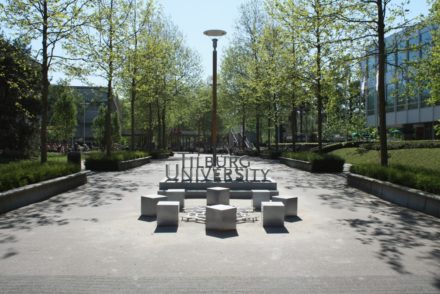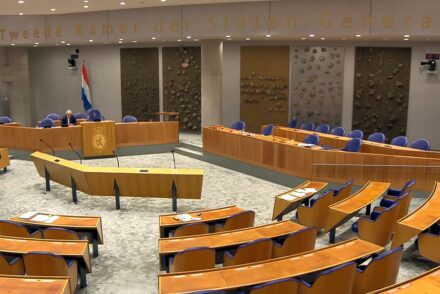Proctored exams are not for ‘thinkers of character’
In an effort to mitigate the negative effects of the Corona crisis on higher education, Tilburg University – backed by the VSNU – has decided to use online proctoring in its exams. As staff members of Tilburg University we have great concern about this development. It imposes on students a solution that they for good reason oppose, even though alternatives are available. By pushing proctored exams the university jeopardizes its own vision to educate thinkers of character.

Beeld Pixabay
Authors: Anton ten Klooster, assistant professor, Tilburg School of Catholic Theology, and Linnet Taylor, associate professor, Tilburg Institute for Law, Technology and Society
At the heart of the debate lies the shared interest of reliable diplomas. The university performs its societal responsibility by safeguarding the quality of its degrees. And the students’ career perspectives are served by having a diploma that has credit on the job market. Yet the solution chosen by the board to serve this interest mainly addresses practical short-term concerns with regard to the organization of examinations. With Proctorio, examinations can take place in the same form as scheduled and larger numbers of students can be examined without inflicting more work on an already overburdened academic staff. One could argue that students receive a fair examination and staff can essentially continue working as usual. Yet this is not a win-win situation since it hurts the relation of the university with its students, with the stronger party imposing its terms.
Negotiation and compromise
Moving exams online causes two problems which are currently being conflated with each other. One has to do with the right to privacy, which is (as any privacy scholar will tell you) not absolute, but has to be negotiated in relation to other rights and duties, such as the university’s right to police exam fraud, and students’ right to an education. Here, negotiation is the sticking point. If nearly 4,000 students (at the time of writing) are signing on to object to this use of online proctoring, it is fair to say that a compromise that respects everyone’s needs has not been reached. The students who are objecting are not trying to avoid exams, and are proposing alternative solutions which are currently being adopted by many other universities around the world. They appear prepared to negotiate, but the pushback suggests that students are being informed rather than consulted as to the use of this technology.
“This is not a win-win situation since it hurts the relation of the university with its students, with the stronger party imposing its terms”
A recent brief from the Association of Test Publishers’ Security Committee (ATPSC), evaluating privacy regulations clearly warns that “it is not sufficient just to say the organization’s interests are legitimate without documenting a proper justification.” Tilburg University has offered to its students two principles for the decision to use Proctorio but has not justified to them why this particular program and this particular invasion of privacy would be warranted.
Inequality
The other problem is one of inequality of access to the online testing environment and the necessary materials/services to do a test that reflects students’ abilities. If people lack up-to-date laptops, reliable connectivity or private space to take the exam, then they – according to the developers’ own account of the technology – are likely to be flagged for fraud at a much higher rate than students who are working with a good internet connection in a private space. This is structurally unfair, as many students do not have a choice about where they are situated at the time of their exams or what connectivity they will use. The assumption is that they can maximize their ability to comply with the conditions the university would like for online examinations, whereas the reality is that many will not be able to.
“Imposing online proctoring, which is arguably the most extreme and discriminatory of solutions to the current crisis, jeopardizes students’ trust in their university”
To suggest they can seems both tone-deaf to the points students are making, and genuinely unaware of the differences between countries and economic conditions. For a university whose motto is ‘understanding society’, it is fair to ask that we understand why students are asking us to handle this problem differently. “In these turbulent times, all the more so because they are so turbulent, Tilburg University sets great store by offering its students opportunities to work on their character”, we can read in the essay undergirding the Tilburg Educational Profile (TEP). Rather than being “an industry churning out diplomas”, Tilburg University wants to form creative and imaginative thinkers, thinkers of character. Among the key values of this project are solidarity and an openness to dissenting voices.
Open debate
The first of these two problems – privacy concerns – could, it seems, be solved with consultation. The second can only be solved by compromise and creativity. This is the very creativity that Tilburg University forms its students for. Rather than ignoring their dissent and countering it with technical arguments, the university board should welcome the students’ call for solidarity. Universities all over the world are currently debating this problem, and are finding different ways to address it. True to its educational vision, Tilburg University should be among those institutions that explicitly invites the student community to be part of that process.
Imposing online proctoring, which is arguably the most extreme and discriminatory of solutions to the current crisis, jeopardizes students’ trust in their university and gives the unfortunate impression that values immediately yield to practical concerns in times of crisis. We urge the university to facilitate an open debate on the current crisis, which addresses not only practical and legal concerns but also the importance of a relationship of trust within the academic community and a shared vision of our educational values. This debate should include all stakeholders: students, staff and society. We can find better solutions, according to multiple criteria including fairness, accountability, and accessibility.







